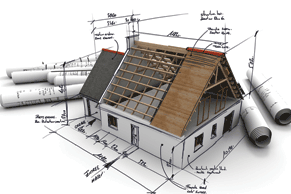Reclaiming VAT on a garden office
The pandemic has led to a huge increase in homeworking. If a house is not suited to office working, the proprietor might decide to build a home office in the garden. But can they claim input tax on the associated building costs?
-
Pay self-assessment tax
-
Cut your losses to get a tax refund
You invested in a company that’s now in dire straits and your shares are worth next to nothing. Selling them isn’t an option so how do you go about getting some tax back on your bad investment?
-
HMRC updates advisory fuel rates from 1 March 2026
HMRC has published the latest advisory fuel and electric rates (AFRs) for company cars, effective from 1 March 2026. Several rates have changed since the previous quarter. What should employers be aware of?

Purpose of expense
Input tax can be claimed on an expense that is incurred for the purposes of a VAT-registered business, as long as it wholly relates to taxable supplies. These expenses include office accommodation and business overheads. For example, there is no problem with a firm of accountants claiming input tax on the cost of renting an office in a city centre.
Some rent payments are not subject to VAT, i.e. when the landlord has not opted to tax the building in question. In such cases rent payments are exempt from VAT.
Legal entity
It will be easier to claim input tax on the costs of building a new home office if the businesses is an unincorporated business, e.g. a sole trader or partnership. The invoices issued to them as the property owner will be in the same name as the VAT registration.
In the case of a limited company, it is therefore important that the company appoints and pays the builders and suppliers, rather than the directors receiving invoices in their own names and paying the relevant amounts from personal funds.
If the owner makes an advance payment to a builder this creates a tax point for VAT purposes. They should therefore ask the builder or supplier for an invoice so they can claim input tax on the payment. It's important not wait until the end of the job to do this.
Private or non-business use?
As long as it can be shown that there is a clear business purpose for the office, then input tax can be claimed on the costs incurred. However, if the intention to use the office for other things, e.g. for private hobbies and interests or those of family and friends, input tax claimed must be apportioned.
The method of apportionment is not prescribed. The business can use any method as long as it gives a fair and reasonable result.
If the business uses the flat rate scheme, it will not be able to claim input tax on the costs of building the new office. Although the scheme allows VAT to be claimed on capital expenditure goods costing more than £2,000 including VAT, such as a new van, this does not extend to capital expenditure on services linked to construction projects, including building materials.
Change of use in future
What is the situation if a business claims input tax on the costs of a new home office but then decides that homeworking is not suitable and return to a commercial office after, say, twelve months? In other words, there will be minimal or no business use of the office thereafter. Does it mean they have to repay the VAT?
There is need to readjust the original input tax claim as long as the project did not fall within the capital goods scheme, i.e. it didn’t cost more than £250,000 excluding VAT. If this figure was exceeded, input tax is adjusted over a ten-year period.





 This website uses both its own and third-party cookies to analyze our services and navigation on our website in order to improve its contents (analytical purposes: measure visits and sources of web traffic). The legal basis is the consent of the user, except in the case of basic cookies, which are essential to navigate this website.
This website uses both its own and third-party cookies to analyze our services and navigation on our website in order to improve its contents (analytical purposes: measure visits and sources of web traffic). The legal basis is the consent of the user, except in the case of basic cookies, which are essential to navigate this website.